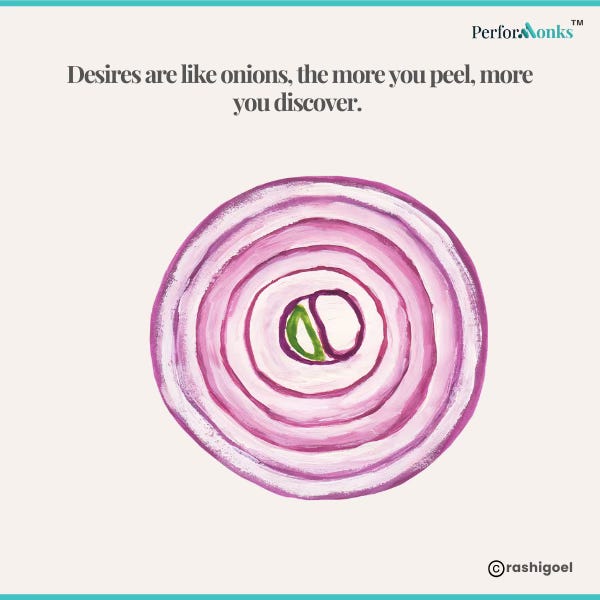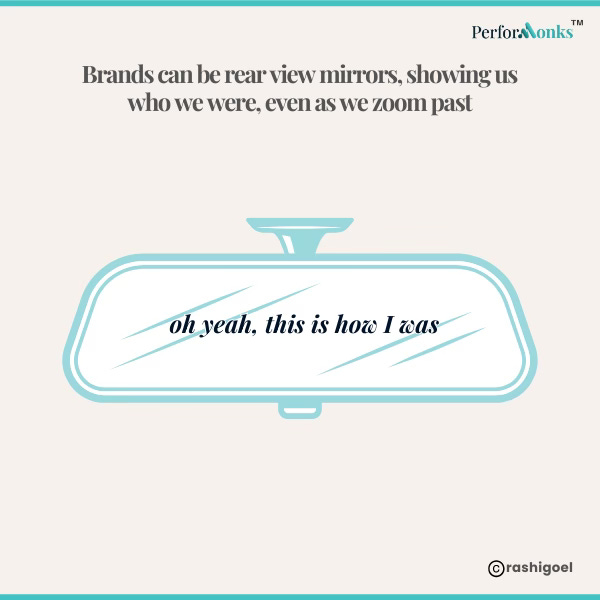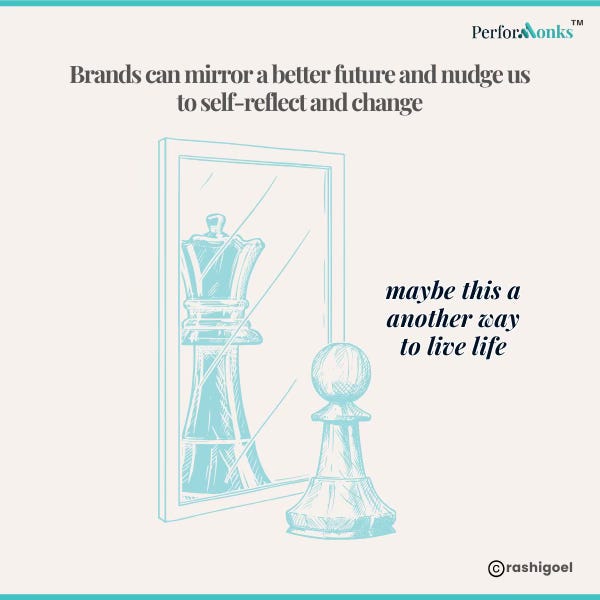Human desires are like onions
Brands have two choices - to be a rear view mirror or to show us a mirror
Practical ideas on marketing and self-mastery they don’t teach in B-school. Performonks goes to 7,478 curious marketers and founders - join them here.
I am writing a newsletter after almost a month.
Turns out that blaming a job for inconsistent writing habits was just an excuse.
Yet another reminder that even though I have put my 9-5 corporate job behind, self-mastery is out of reach unless it becomes a 24/7 obsession.
Today’s newsletter is short, compared to the 1,200 words I generally write.
Human desires are like onions. It briefly introduces the idea of human desire.
Our desires shape-shift over time. How our desires evolve with time.
Since brands exist as long as desires exist, brands have two choices
they can be rear view mirrors, and show us who we were
or they can show us a mirror and nudge us to self-reflect and change
Human desires are like onions.
The more we peel, the more we discover.
But we have to be prepared to sweat and cry through the process because humans keep their desires hidden. Sometimes, even from themselves.
We hide them beneath bluster, pretence, ego. And things.
A Goa vacation to save a faltering marriage.
Hello Kitty and Chota Bheem stationary for a dull student.
A brand new Brooks Brothers wardrobe for the job we want instead of the one we have.
As long as humans continue to fill their desire-shaped holes with things, brands will exist.
There are many many psychological knots that hide our desires.
One of them is our hunger to build an even better tomorrow on top of a good enough today.
That’s why, our desires shape-shift over time.
Mostly, they move at a glacial pace. We wake up at 50 and wonder how we’ve became a person who colours their hair every month, when at 22, we shied away from all hair products because they contained ‘harsh chemicals’.
Sometimes, desires lurch forward like a drunken man, and we get sweet-talked into buying an HDFC ULIP, only to regret it the next day.
Whether our desires take decades to change, or hours, brands have only two choices - to follow our desires or to lead them.
Good brands and businesses are like rear-view mirrors.
Like rear view mirrors, they show us where we came from.
Such brands remain relevant as long as they tap into desires that only shape-shift slowly, over decades.
For instance, when I was a young marketer, all our research showed us that consumers craved confidence.
We could fit all categories - skincare, toothpaste, laundry detergent, even a floor cleaner, into neat, confidence-shaped packets.
When I look good, I feel more confident.
When my breath smells fresh, I feel confident to get closer to my crush.
When my clothes look bright and clean, I feel more confident.
When my house is clean, I feel more confident when guests come over.
‘Confidence’ is so generic yet ever-present that even today, we can fit most brands into this space.
This strategy is the marketing equivalent for, “no one gets fired for hiring IBM.”
With a ‘rear view mirror strategy,’ you won’t go wrong but you may not stand out and create marketing history.
The best brands and businesses show us a mirror.
They understand our desires. And don’t judge us for having them.
But, they also understand that a large part of what we do and want is a derivative of what society, media, parents, the government and influencers, tell us we should do and want.
These brands understand that they can’t coerce us into changing.
All they can do is to untie our psychological knots and inspire us to be better.
They hope we follow.
It’s also ok if we don’t.
I share two brand stories that made me want to be a better person.
Especially today, in context of everything that’s happening in the world, they are even more relevant.
They speak for themselves, So I will refrain from commentary.
#1 Amazon in UK
#2 Sydney Olympics
Thanks for reading and I’ll see you next week.
More ways to connect
See my: Website
Join this Newsletter
Connect on: Linkedin









Great article!
Pls write about functional frameworks used in fmcg (example JTBD, Unmissable brand superiority model etc.)
In today’s world when everything is so confusing where people are having a constant fight between faith and belief, it’s time to reignite these kind of stories which talk about Love, Humility and Empathy